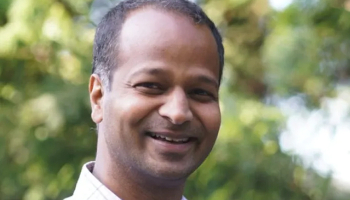Banking Exchange Interview: Soups Ranjan Founder and CEO of Sardine Discusses AI
Soups Ranjan Discusses AI and Technology in the Banking Industry
- |
- Written by Banking Exchange staff

1. What should financial institutions do in considering a model for using AI and machine learning to both make their business more efficient as well as fraud prevention?
The mistake I see many companies make is trying to apply AI to the wrong problem, or applying AI well with poorly labelled data or bad data quality. As the saying goes "if you put garbage in, you get garbage out." You need to have a clear view of what AI can and cannot solve, and you need to have proper prerequisites in place to take advantage of AI.
- To become more efficient, using AI to help with some of the basics, like cleansing your payments data or making sense of your BSA/AML risk is a great starting point. Take transaction monitoring for example. Often financial institutions have teams of analysts pouring through data from old systems that are hard to read, pulling this into spreadsheets. AI can do a lot of this leg work to cleanse the data, and help you spot patterns that should be reported to regulated.
- To catch fraud, I always say you need better data and then you need more data, to train the best AI. Better data might be from things like a user’s device or their behavior, more data might be from open banking or Telco networks. This data allows us to get a much more complete picture of a customer, to truly know your customer, before onboarding them or offering them a loan. This reduces manual work, reduces fraud but also increases your profitability from lending or other products overall.
2. In expanding on what a financial institution should look for specifically in the right technology partner or partners, how does size impact the decision?
From partners I look for:
- Doesn't charge for a conversation or to make change. Too many vendors are like bad landlords instead of good waiters. They charge you for any small change. Instead find vendors whose products are not only changeable by your team, but will also recommend changes you should make proactively. Without you having to outsource that to some managed services function. This can mean massive savings and huge impact on your ability to innovate.
- Adaptable and rapidly changing product. Innovation is now table stakes, I need partners whose products can keep up with the market. It's no longer good enough to have the "out of the box" solution everyone else has. There's too much risk, too few deposits and too much pressure on NIM to have technology be an after thought.
- Smaller partners can offer much more tailored and nuanced products for your use case, and the good ones are ready for bank grade security. For example, we work with Stearns and Bank of Broadhead enabling their embedded banking offering, and behind the scenes with massive tier-1 financial institutions.
3. Are different regions more forward thinking than others? For instance, in the area of speed of payments, most analysts would say that adoption was actually quicker in Europe than North America over the past few years. Do you see specific trends?
- The UK, India and Brazil all had real-time payments for the last 5 to 15 years, the biggest trend was faster payments meant faster fraud. Without the 3 day delay on ACH, there was no returns process, and fraudsters abused the system. In the UK push payment (RTP) fraud has overtaken cards as not only the #1 fraud, but it's the #1 crime in the country.
- To combat this financial institutions have started to do "confirmation of account number and customer name match." And the regulator has setup a 50/50 liability split for RDFI and ODFI (whether that is a digital wallet like an MTL or financial institution).
- This is already an issue in push-to-card, Zelle and Venmo and I expect FedNow will make it much worse. The New York AG just filed a suit against Citi for failing to protect customers under Regulation E. It is a matter of time until this becomes a major cost.
4. As much as the industry seems to see fraud prevention as an incredibly important focus, most executives have not said that they see major budget increases for fraud prevention tools. Do you think that banks need to take a harder look at their budgets and/or is it simply more important to have the right strategy?
The critical thing is being willing to do things that don't feel normal. Like bringing in data analysts, and being much more data-driven in how fraud risk is managed. I've never believed the first answer to a problem is to hire people. As you throw bodies at an issue, you potentially just mask it and create cost. You want to be sure you're going to solve it. We had a client whose fraud solution was costing them well over two million dollars per year and by switching to Sardine we were able to reduce that by 10x. They maintained their headcount, but massively reduced fraud. On average our clients have seen between 2x and 6x ROI within the first year.
Tagged under Technology, Artificial Intelligence, Feature, Feature3, Tech Management, Outsourcing/Cloud, Online, Digital,
Related items
- Inflation Continues to Grow Impacting All Parts of the Economy
- Banking Exchange Hosts Expert on Lending Regulatory Compliance
- Merger & Acquisition Round Up: MidFirst Bank, Provident
- FinCEN Underestimates Time Required to File Suspicious Activity Report
- Retirement Planning Creates Discord Among Couples













